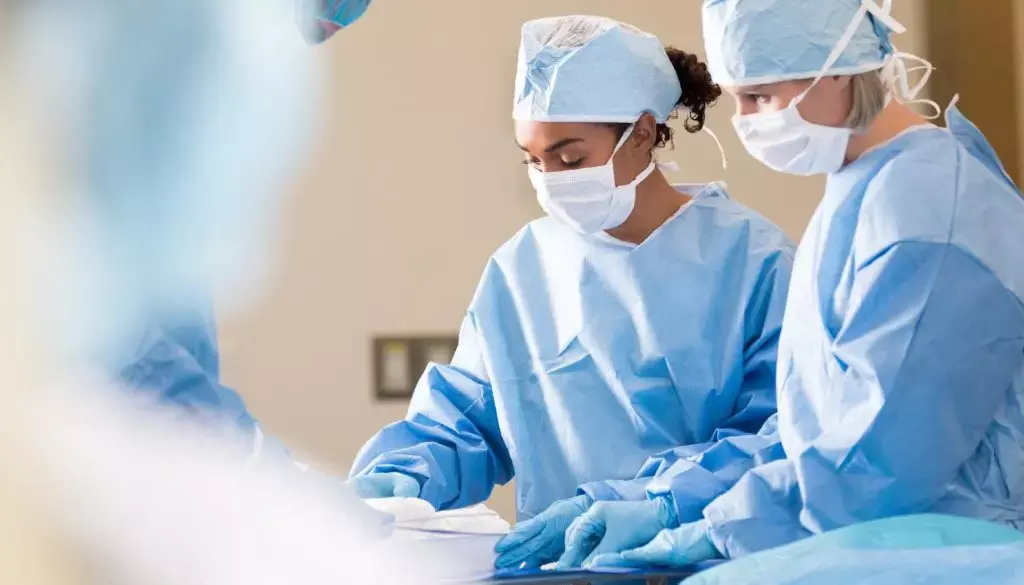- Home
- Medical news & Guidelines
- Anesthesiology
- Cardiology and CTVS
- Critical Care
- Dentistry
- Dermatology
- Diabetes and Endocrinology
- ENT
- Gastroenterology
- Medicine
- Nephrology
- Neurology
- Obstretics-Gynaecology
- Oncology
- Ophthalmology
- Orthopaedics
- Pediatrics-Neonatology
- Psychiatry
- Pulmonology
- Radiology
- Surgery
- Urology
- Laboratory Medicine
- Diet
- Nursing
- Paramedical
- Physiotherapy
- Health news
- Fact Check
- Bone Health Fact Check
- Brain Health Fact Check
- Cancer Related Fact Check
- Child Care Fact Check
- Dental and oral health fact check
- Diabetes and metabolic health fact check
- Diet and Nutrition Fact Check
- Eye and ENT Care Fact Check
- Fitness fact check
- Gut health fact check
- Heart health fact check
- Kidney health fact check
- Medical education fact check
- Men's health fact check
- Respiratory fact check
- Skin and hair care fact check
- Vaccine and Immunization fact check
- Women's health fact check
- AYUSH
- State News
- Andaman and Nicobar Islands
- Andhra Pradesh
- Arunachal Pradesh
- Assam
- Bihar
- Chandigarh
- Chattisgarh
- Dadra and Nagar Haveli
- Daman and Diu
- Delhi
- Goa
- Gujarat
- Haryana
- Himachal Pradesh
- Jammu & Kashmir
- Jharkhand
- Karnataka
- Kerala
- Ladakh
- Lakshadweep
- Madhya Pradesh
- Maharashtra
- Manipur
- Meghalaya
- Mizoram
- Nagaland
- Odisha
- Puducherry
- Punjab
- Rajasthan
- Sikkim
- Tamil Nadu
- Telangana
- Tripura
- Uttar Pradesh
- Uttrakhand
- West Bengal
- Medical Education
- Industry
Robot-assisted thoracoscopic surgery safe and effective for posterior mediastinal neurogenic tumors

Robot-assisted thoracoscopic surgery (RATS) for posterior mediastinal neurogenic tumors is safe, effective, feasible and bring the superiority of robotic surgical system into full play suggests a recent study published in the BMC Surgery.
Results
All 39 patients successfully underwent the resection of posterior mediastinal neurogenic tumors under RATS, and no conversion to thoracotomy occurred during the operations.
The average operative time was (62.1 ± 17.2) min, the average docking time was (10.1 ± 2.5) min, the average intraoperative bleeding was (32.8 ± 19.5) ml, the average 24-h postoperative chest drainage was (67.4 ± 27.9) ml, the average postoperative chest drainage time was (2.2 ± 1.3) days and the average post-operative hospital stay was (3.2 ± 1.3) days.
Postoperative complications occurred in 3 patients, including 2 patients with transient Horner's syndrome after surgery and 1 patient with transient anhidrosis of the affected upper limb after surgery.
RATS for posterior mediastinal neurogenic tumors is safe, effective, feasible and bring the superiority of robotic surgical system into full play.
Reference:
Hong, Z., Gou, W., Cui, B. et al. Analysis of the efficacy of the da Vinci robot in surgery for posterior mediastinal neurogenic tumors. BMC Surg 22, 413 (2022). https://doi.org/10.1186/s12893-022-01855-x
Keywords:
Hong, Z., Gou, W., Cui, B, Analysis, efficacy, da Vinci, robot, surgery, posterior, mediastinal neurogenic, tumors, BMC Surgery
Dr. Shravani Dali has completed her BDS from Pravara institute of medical sciences, loni. Following which she extensively worked in the healthcare sector for 2+ years. She has been actively involved in writing blogs in field of health and wellness. Currently she is pursuing her Masters of public health-health administration from Tata institute of social sciences. She can be contacted at editorial@medicaldialogues.in.
Dr Kamal Kant Kohli-MBBS, DTCD- a chest specialist with more than 30 years of practice and a flair for writing clinical articles, Dr Kamal Kant Kohli joined Medical Dialogues as a Chief Editor of Medical News. Besides writing articles, as an editor, he proofreads and verifies all the medical content published on Medical Dialogues including those coming from journals, studies,medical conferences,guidelines etc. Email: drkohli@medicaldialogues.in. Contact no. 011-43720751


